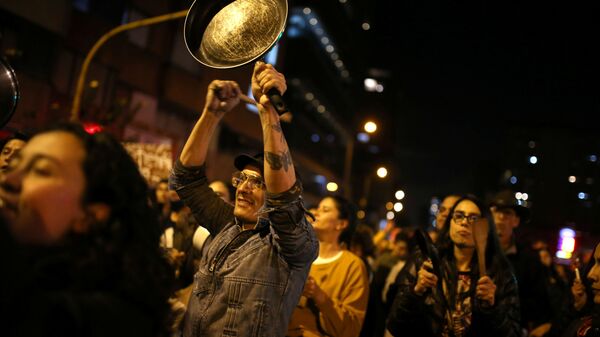Late on Friday, some dozens of protesters relocated from the centre of Bogota to adjacent areas surrounding the residence of President Ivan Duque, ignoring a citywide curfew and blocking road traffic. Videos posted to social media depicted a mob chanting and making rhythmic noises using simple household items like pans and bowls.
En #Colombia los ciudadanos indignados están frente a la casa del presidente @IvanDuque
— Paul Cruz (@Ku1989Paul) November 23, 2019
protestando pacíficamente. #ColombiaDespierta pic.twitter.com/SsWIhvjVa8
Manifestantes al norte de Bogotá, frente a la casa del Presidente, cantan el himno de Colombia a poco menos de una hora del toque de queda pic.twitter.com/cLmT8G0qoZ
— David González M. (@Davo_gonzalez) November 23, 2019
Duque earlier on Friday imposed a curfew on the entire city of Bogota, after peaceful protest rallies kicked off earlier this week turned violent.
Esto está pasando a esta hora a las afueras de la casa del presidente @IvanDuque pic.twitter.com/8JW8dX7V4I
— RicardoGonzálezDuque (@RicardoGonDuq) November 23, 2019
Duque has authorized the use of emergency means for ensuring order during the protests, banning the possession of firearms and prohibiting the consumption and sale of alcohol.
En la casa del presidente. pic.twitter.com/TsUd3Ws3di
— dansalaco (@Dansa) November 23, 2019
In a televised address, Duque called for a "national conversation" to discuss the grievances of Colombians that have lead to the massive unrest.
Protests were initially planned at a student rally, but some in the political opposition announced plans to hold a general strike the same day. Fearing that Colombia might follow recent scenarios that have endangered the rule of several other Latin American administrations recently, the incumbent government has taken what it describes as preemptive measures.


